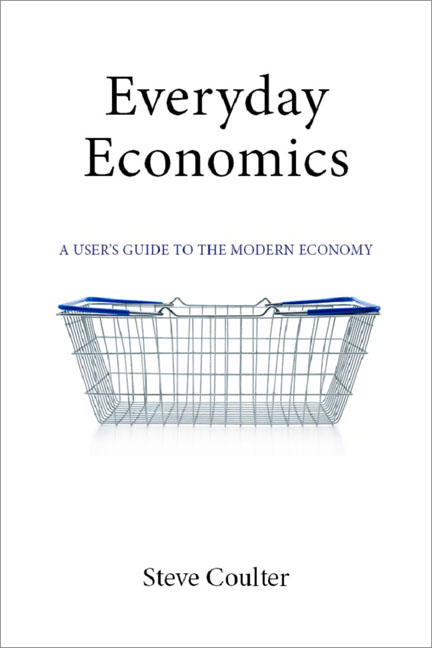Book contents
- Frontmatter
- Contents
- Preface and Acknowledgements
- 1 Economics: What is it Good For?
- 2 Knowledge is Power: Education and Training
- 3 Let’s Get Busy: Work and Occupations
- 4 Get Well Soon: Health and Healthcare
- 5 Making the World Go Around: Money, Banking and Personal Finance
- 6 Home Sweet Home: The Housing Market
- 7 Shop Till You Drop: Shopping and Consumption
- 8 From Cradle to Grave: Benefits and Welfare
- Index
Preface and Acknowledgements
Published online by Cambridge University Press: 09 August 2023
- Frontmatter
- Contents
- Preface and Acknowledgements
- 1 Economics: What is it Good For?
- 2 Knowledge is Power: Education and Training
- 3 Let’s Get Busy: Work and Occupations
- 4 Get Well Soon: Health and Healthcare
- 5 Making the World Go Around: Money, Banking and Personal Finance
- 6 Home Sweet Home: The Housing Market
- 7 Shop Till You Drop: Shopping and Consumption
- 8 From Cradle to Grave: Benefits and Welfare
- Index
Summary
This is a book about economics for non-economists. It requires no grounding in economics at all – just, hopefully, a lively interest in the world around and an ability and willingness to think about things logically and systematically. It is aimed at students in the humanities and the social sciences who are likely to encounter some economics in their work and studies, and thereby perhaps want to know a bit more about the economy without needing to sign up for a lot of mathematical-sounding economics modules. As such, it tries to place economics in its real-world, political context, and for this reason it may even appeal to trained economists wanting a rounder view of their discipline.
Hopefully, all kinds of readers will find something of interest in the book and will be left with a desire to know more. It is for this reason that copious references are provided, not just to support various assertions and data points but also to guide readers towards further sources that may be of interest. As well as laying out how economists approach the topics examined here, the book also tries to serve as a guide to past and current debates and controversies in economics. Although mildly critical of some of the tenets of neoclassical economics, it does not consciously take sides in any of these debates but aims to instil in readers a curiosity to learn more about the economy and what economists have to say about it.
A great many people assisted in the writing of this book. In particular, I would like to thank my publisher at Agenda, Alison Howson. In addition, Waltraud Schelkle, Bob Hancké, Nick Barr, Michael Beveridge, Darren Acheson and several anonymous reviewers read all or part of the manuscript and gave immensely helpful comments. Any errors are mine, of course. Pieter Tuytens, Marina Cino-Pagliarello, Chrysa Papalexatou, Frieder Mitsch, Dimitrios Koutsoupakis and Sarah Watters provided invaluable research assistance. Finally, my greatest debt and fondest appreciation go out to Sunita and Lucas, to whom this book is dedicated.
- Type
- Chapter
- Information
- Everyday EconomicsA User's Guide to the Modern Economy, pp. vii - viiiPublisher: Agenda PublishingPrint publication year: 2017

